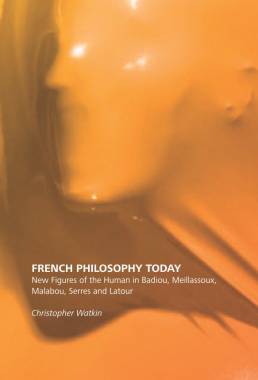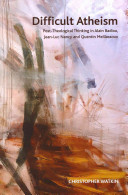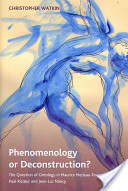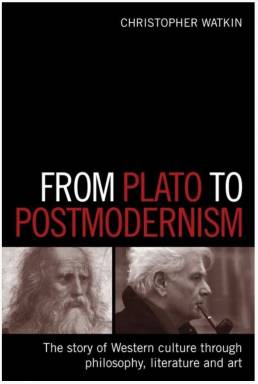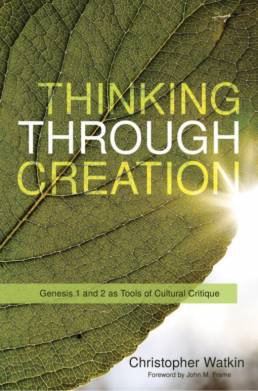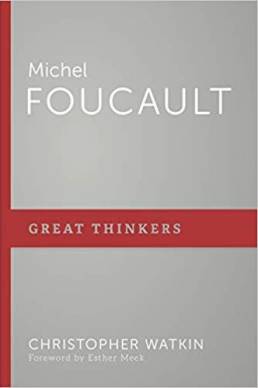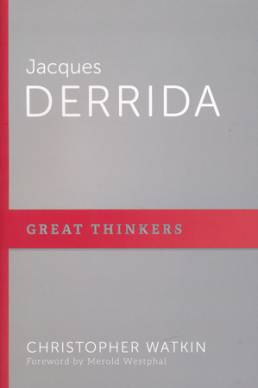
Welcome to my site.
I lecture and research in French Studies at Monash University in Melbourne, Australia. The centre of gravity of my research is in contemporary French thought, with a focus on atheism, theology, ecology, (post)humanism, liberation and freedom. In Difficult Atheism I explore the complex relationship between theism and atheism, and its crucial implications for many aspects of thought and life. French Philosophy Today: New Figures of the Human argues that we are living through a moment in which philosophers are radically re-imagining the nature and status of the human being, and doing so in diverse and often contradictory ways. My book on the influential French thinker Michel Serres is due for publication in 2020, exploring the “figures of thought” that characterise his writing on themes such as ecology, language, objects and materialism. My latest research project explores how the concept of freedom is framed in key contemporary debates, in the context of the argument that what philosophers call the “emancipation narrative” of modernity has come to an end.
I edit the international Crosscurrents monograph series for Edinburgh University Press. The series showcases the ways in which European thought re-makes repeatedly itself in its encounters with disciplines as diverse as mathematics, biology, theology and politics.
You can find me on twitter, researchgate.net and academia.edu, as well as at my Monash University page. You can find a more detailed explanation of my research trajectory, current projects and a brief biography here.
Recent tweets and blog posts
Talks and excerpts
Click here for a list of all my chapters, talks, interviews, reviews, articles, lectures and excerpts available on this site.
Book summaries
French philosophy today is laying fresh claim to the human. This is not to be mistaken for a return to previous ideas of the human, nor is it, strictly speaking, a posthuman turn. It is a series of independent, simultaneous initiatives, arising in the writing of diverse current French thinkers to transform and rework the figure of the human. Christopher Watkin draws out both the promises and perils inherent in these attempts to rethink humanity’s relation to ‘nature’ and ‘culture’, to the objects that surround us, to the possibility of social and political change, to ecology and even to our own brains. This comparative assessment makes visible for the first time one of the most important trends in French thought today.
In this important book Christopher Watkin shows us the transformations of the human in the work of five contemporary philosophers who exceed the limits of post-structuralism. His treatments of Badiou, Meillassoux, Malabou, Serres and Latour function as valuable resources on their work and an original thesis in his own terms.
-Clayton Crockett, University of Central Arkansas.
Drawing on the work of Alain Badiou, Jean-Luc Nancy and Quentin Meillassoux, Watkin explores the themes of atheism and the death of God, probing the limits of any atheistic politics. Difficult Atheism argues that rigorous atheism is elusive and that Continental thought, even in its most stridently atheistic guises, has yet to fully come to terms with the death of God.
This book is a brilliant presentation of debates between key figures in the recent turn to religion (even in the shape of an insistent atheism or a-theism) in continental philosophy. Chris Watkin positions his work very precisely between philosophies of the finite (Nancy) and of the infinite (Badiou). The author could not have his finger more firmly on the pulse of contemporary discussion of these matters. I cannot think of a book on such difficult material written with more sparkle or clarity.
–David Wood, Centennial Professor of Philosophy, Vanderbilt University
Phenomenology or Deconstruction? contains new readings of Maurice Merleau-Ponty, Paul Ricœur, and Jean-Luc Nancy. Jacques Derrida’s engagement with phenomenological themes generates a new understanding of “being” and “presence” that exposes significant blindspots in traditional readings of both phenomenology and deconstruction. In reproducing neither a stock phenomenological reaction to deconstruction nor the routine deconstructive reading of phenomenology, Christopher Watkin provides a fresh assessment of the future of phenomenology along with a new reading of the deconstructive legacy. Through careful studies of the philosophy of Merleau-Ponty, Ricœur, and Nancy, Watkin shows how a phenomenological tradition much wider and richer than Husserl or Heidegger takes into account Derrida’s critique of ontology while maintaining a commitment to the ontological. This new reading fundamentally recasts the relation between deconstruction and phenomenology and marks the first sustained discussion of the possibilities and problems for future “deconstructive phenomenology.”
Lucid and rigorous in equal measure, Watkin’s Phenomenology and Deconstruction is both a timely intervention and a critical introduction to a vital current in contemporary European thought. It is also an essential reconfiguration of the intellectual landscape as concerns phenomenology, giving us back the bodies we need, but stranger and richer.
-Prof. Patrick ffrench, Department of French, King’s College, London
From Plato to Postmodernism is a primer in Western Culture, helping the student to bridge the gap from high school to college and taking everyone with an interest in the fascinating story of the West on a journey through its leading names and most important turning points. This book gathers together the cultural history of the West into a concise volume in which nearly four thousand years of Western cultural history come together in one unfolding story in which philosophy, literature and art all reflect and shape the twists and turns that have built today’s world.
In sum, I can imagine someone using different selections to write this type of survey, but I cannot imagine someone doing a better job overall.
- M. Jason Reddoch, Bryn Mawr Classical Review
Reading Genesis 1 and 2, we are tempted to see only problems to solve. Yet these two chapters burst with glorious truths about God, our world, and ourselves. In fact, their foundational doctrines are among the richest sources of insight as we pursue robust, sensitive, and constructive engagement with others about contemporary culture and ideas. With deftness and clarity, Christopher Watkin reclaims the Trinity and creation from their cultural despisers and shows how they speak into, question, and reorient some of today’s most important debates.
This is a remarkable book, from a top flight expert in post-structuralist French philosophy-meaning he understands our current cultural context.
- Timothy Keller, founding pastor of Redeemer Presbyterian Church, New York City, and author The New York Times bestselling title The Reason for God: Belief in an Age of Skepticism.
Hugely influential, Michel Foucault’s work has not only impacted a diverse range of disciplines—from history and sociology to fine arts, feminism, and gay and lesbian studies—but has also profoundly shaped Western culture at a street level. Yet until now there has been no overarching systematic approach to his work from a Reformed perspective—let alone one that is as fair and accessible as Watkin’s. After walking us through key elements of Foucault’s thought, Watkin both critiques and answers Foucault through the Bible’s teaching on history, power, and identity. His insights are necessary reading for anyone who wants to engage thoughtfully with the ideas of our culture.
Watkin has done it again! In less than a hundred and fifty pages of text, he has successfully laid out the core concerns—history, power, and identity—of one of the twentieth century’s leading postmodern presuppositionalists, Michel Foucault, and put them into constructive dialogue with the way that the apostle Paul treats these same three themes in the opening chapters of 1 Corinthians. This is a brilliant study of how the story, and wisdom, of the cross continues to confront, confound, and turn upside down the wisdom of this world.
—Kevin J. Vanhoozer, Research Professor of Systematic Theology, Trinity Evangelical Divinity School
One of the most important thinkers of our time, Jacques Derrida continues to have a profound influence on postmodern thought and society. Christopher Watkin explains Derrida’s complex philosophy with clarity and precision, showing not only what Derrida says about metaphysics, ethics, politics, and theology but also what assumptions and commitments underlie his positions. He then brings Derrida into conversation with Reformed theology through the lens of John 1:1-18, examining both similarities and differences between Derrida and the Bible.
Christopher Watkin’s remarkable book explains better than any other the nature of Derrida’s program and the reasons for its persistence. Watkin corrects misunderstandings and caricatures. Complete with helpful diagrams, the book is a tour de force. I wish I had possessed it while in graduate school.
—William Edgar, Professor of Apologetics, Westminster Theological Seminary.
Tags
A Madman's Diary
Animality
Animal Rights
António Guterres
Before Tomorrow
Bertrand Russell
critical animal studies
Crosscurrents
Descartes
Design
differance
Excel
Farsi
Gaia
George W Bush
human beings
human language
immersive language learning
Jacques Derrida
Jacques Rancière
Krapp's Last Tape
L'Hermaphrodite
logocentrism
logos
Macros
memory
memory aid
Microsoft Word
Naturalism
nature and culture
philosophy and theology
Pico della Mirandola
Poetry and Revelation
Rene Descartes
research
Simone de Beauvoir
social contract
Society for European Philosophy
theology
theology and philosophy
Three Colors Blue
TweetDeck
Twitter
Waiting for Godot
war
Categories
- Code and apps
- Hans-Georg Gadamer
- Marie-Eve Morin
- Reformed thought
- Disseminating research
- Community
- Hermeneutics
- Mathew Abbott
- Relativism
- Teaching ideas
- Uncategorized
- Crosscurrents
- Humanism
- Mathilde Monnier
- Research hacks
- Freedom, liberation and emancipation
- Aesthetics
- Dance
- Humanity after God
- Michel Foucault
- Roland Barthes
- Agnès Varda
- Alain Badiou
- David Wood
- Ignaas Devisch
- Michel Serres
- Samuel Beckett
- Michel Serres and film
- Alfred North Whitehead
- Death of God
- Imago dei
- Michel Serres Dictionary
- Sigmund Freud
- climate change
- Android app
- Death of the author
- Jacques Derrida
- Michel Serres: Figures of Thought
- Simone de Beauvoir
- Talks and excerpts
- Animal rights
- Deconstruction
- Jacques Rancière
- Modernism
- The Human Remains
- Western culture
- animals
- Difficult Atheism
- Jean-Luc Nancy
- narrative
- Truth
- Immanuel Kant
- Anthropocentrism
- ecology
- Jean-Pierre Changeux
- Naturalism
- Wahida Khandker
- social contract
- art
- equality
- Kevin Hart
- New Materialism
- World Literature
- La Peste (The Plague)
- Artificial Intelligence
- Feminism
- Learning tools
- Nicholas Davey
- Derrida diagrammed
- Etienne Balibar
- Atheism
- French Philosophy Today
- Leemon McHenry
- Paul Ricoeur
- Guest Post
- state of nature
- Bruno Latour
- Friedrich Nietzsche
- Logic
- Phenomenology
- Sylvia Plath
- The State of Nature and the Shaping of Modernity
- Catherine Malabou
- Gilles Deleuze
- Love
- Philippe Lacoue-Labarthe
- What is a theological concept?
- Teaching hacks
- Christianity
- Giorgio Agamben
- Marcel Gauchet
- Quentin Meillassoux
- Albert Camus
